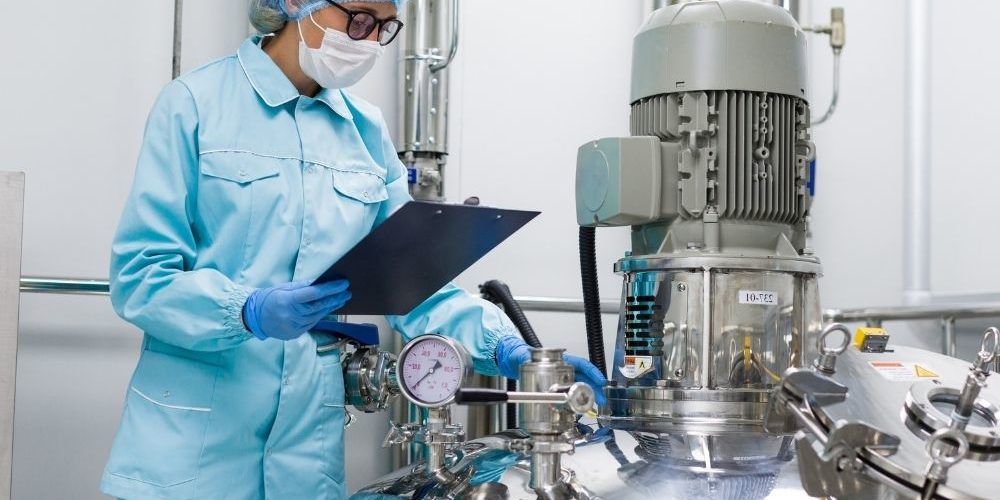Few people realize that chemical engineering is a necessity in a wide range of industries representing all sorts of products and services that you use in your everyday life. Let’s go over some of the industries that can benefit from chemical engineering services and the kind of demands those services fulfill.
Petrochemicals
Petrochemicals are the byproduct chemicals produced during the refinement process of fossil fuels such as petroleum, coal, and natural gases, as well as renewable sources like corn, sugar cane, and palm fruit. These petrochemicals are then taken by chemical engineers and made into common products such as:
- Aspirin
- Shampoo
- Detergents
- Pesticides
- Gasoline
- Carpeting
- Synthetic Fibers
- Synthetic Rubber
- Insulating Materials
- Paint
Petrochemicals can be compared to commodity chemicals because they’re produced in large amounts, but petrochemicals are a bit more unique in that they produce related products rather than the single chemical commodity batches create. The primary products of petrochemicals are divided into three groups by their chemical structure.
Olefins, also known as alkenes, are compounds made up of hydrogen and carbon that contain one or more pairs of carbon atoms linked by a double bond. Olefins are also examples of unsaturated hydrocarbons.
Aromatics are a special type of hydrocarbon. They produce polymers and have a planar molecular structure with at least one carbon ring and 4n+2 electrons that contribute to covalent bonds.
Synthetic gas, or syngas, is used in gas mixtures that serve as feedstocks during the synthesis process of chemical intermediates like methanol. It denotes a mixture of carbon monoxide and hydrogen that contains a small amount of CO2 and methane. For this reason, synthetic gas is considered the most important chemical feedstock.
Pharmaceuticals
Given the ongoing COVID-19 pandemic, the pharmaceutical industry is currently the industry that can benefit from chemical engineering services the most. Chemical engineers aid the pharmaceutical industry by developing new medications and synthesizing existing medicines so that they are widely available. Additionally, they experiment with bacteria, animal, and plant cells in order to better understand diseases and figure out how we can defeat them while creating medication that reacts well with human consumption.
Formaldehyde producers, in particular, will find themselves helping to develop new vaccines, as formaldehyde is a crucial component to suspending the virus samples within a vaccine. Chemical engineers will always be at the forefront of medicinal advancements and are responsible for saving millions of lives from preventable diseases.
Construction
Chemical engineers play more of a supervisory role in construction and design. During construction, the processes used can mean the difference in preserving the surrounding environment or ensuring the safety of the workers within the construction site. Chemical engineers help design and develop production processes or operate in research and development to mitigate the environmental impact of a project and create safe conditions for humans to work in. If there are contaminants in water or wastewater, chemical engineers work on physical, chemical, and biological unit operations to safely remove those contaminants.
Some other functions of chemical engineers include managing new construction projects, treatment plants, and distribution networks.
Food Processing
Food additives create stronger flavors and make food more appetizing in appearance for consumers. In fact, a lot of traits and features we come to expect of fruits, vegetables, and more are a result of chemical engineering. Chemical engineering is often used to promote desired traits in food while doing away with undesirable ones. For instance, we know bananas as seedless fruits because chemical engineers capitalized on banana trees that were triploid, meaning they have three sets of chromosomes. These trees pollinate as normal but aren’t capable of producing seeds.
Though many people are cautious of how chemicals affect our food, consider instead how chemical engineering can encourage healthier diets by making vegetables and similar foods more appealing or better tasting.
Beyond finding ways to improve our food, chemical engineers also work to develop food packaging that keeps food fresh for longer and delays the inevitability of spoilage. Better food packaging makes it more viable to ship more food around the world as well as stockpile food in preparation for a food shortage, should one ever occur.
Electronics
Chemical engineering can even be found in the production of electronics. Though chemical engineers aren’t making the electronics themselves, they’re involved with developing and producing necessary materials as well as designing process control equipment. For example, a large contribution that chemical engineers make in developing materials is the production of components that better dissipate heat and thus work faster and more effectively. The process control equipment works to ensure electronics and other products are produced efficiently and consistently so that the flow of production runs smoothly.
Polymers
Polymers are substances that are comprised of molecular structures that consist of many similar units bonded together. Or, perhaps in a simpler explanation, they are a very large, chainlike molecule made up of monomers, which are small molecules. Polymers are everywhere, and they make objects like spandex stretch or tennis shoes bounce.
Featuring large spatial extents and chemical variety, polymers give chemical engineers the opportunity to be architects at the molecular level. This makes chemical engineering a central, leading part of developing and producing polymers and similar products.
Biotechnology
Similar to the work chemical engineers do to improve processed foods, chemical engineering services are also involved in improving the growth and production of food products themselves. With the aid of chemical engineering in biotechnology, crops grow bigger and healthier than ever, enabling us to produce more food on less land. This is becoming an increasingly vital function of chemical engineering as the world’s population grows and more food is needed to keep up with that growth.
Specifically, a chemical engineer’s role in the biotechnology industry involves developing and designing processes to grow, handle, and harvest living organisms such as crops and their byproducts. This ensures we get the greatest yield out of every harvest.
Don’t let your business fall behind by neglecting chemical engineering. If your industry is able to make use of such services, contact Capital Resin today to learn more about what we can do for you. With our help, you’ll remain well-stocked with necessary chemicals, guiding you toward more efficient practices and new methods.








